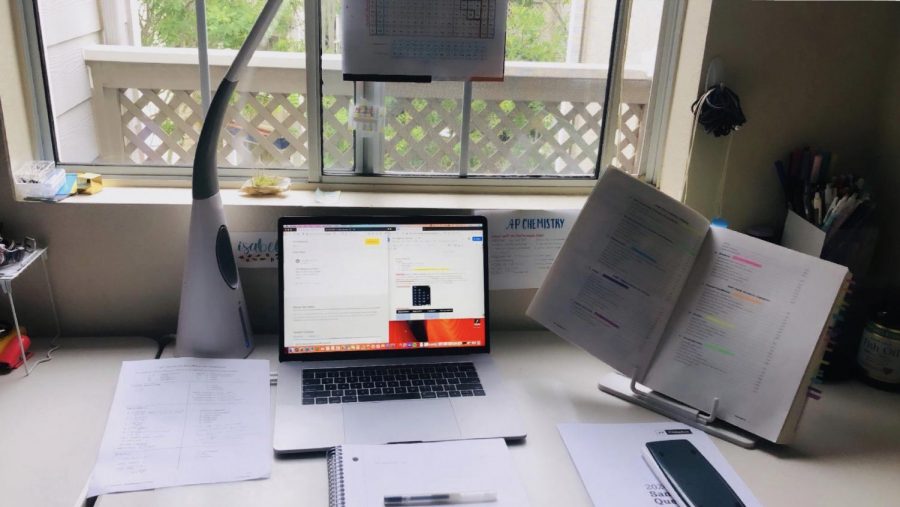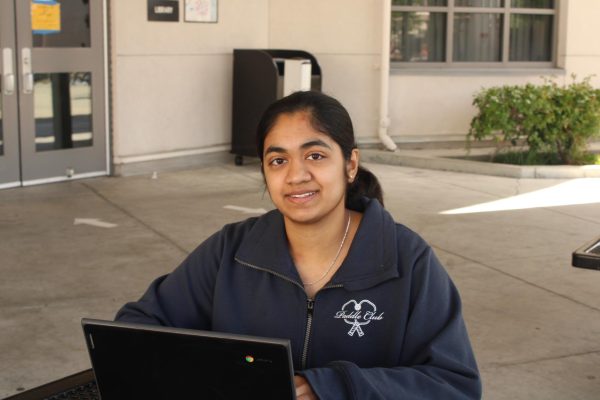AP testing raises concerns for students
Errors and retakes from last year’s exam have students doubting the College Board
Last spring, all AP students took their tests from home because of the coronavirus pandemic.
When senior Thomas Files signed up to take five AP tests last May, he had no clue what was in store for him. Instead of taking just five tests like he expected, he was forced to take a total of 10 tests because of glitches in the system the College Board set up for pandemic test-takers.
The most recent AP testing season in May was unprecedented, with a brand new online system set up so that AP test takers could isolate while testing. The College Board claimed that it went well, but many students don’t feel the same.
Files was forced to take the AP US History test three times and AP Language twice because the College Board’s site wouldn’t accept his tests when he tried to submit them.
“It was very intense, traumatic, and just confusing,” Files said. “Oh, and stressful.”
Files said he doesn’t trust the College Board anymore and doesn’t have high hopes for the next round of testing. He is not the only one.
Senior Misha Bhatia had a similar experience. She signed up to take the AP English Language test and thought she did well. But when she went to see her score, she had a scare.
Bhatia had expected to pass the test. Instead she got a 1, which is a failing score.
“It was a long process to get my score fixed. I had to call the College Board many times, contact my teacher, and submit an appeal,” Bhatia said. “It was annoying because it was the College Board’s mistake, not mine, and I had to do all the work.”
Bhatia, along with her teacher, believed that she deserved a 4. But she got a 3, which Bhatia thought was still unfair.
Many students that took AP tests last spring are wary of the College Board’s ability to administer another round of online tests if the coronavirus pandemic forces students to take them from home again this year.
But there are still people who think that this was a one-time thing.
Sophomore Rishik Drusavala, an AP test hopeful, has different ideas on what to expect. He is taking AP Computer Science and AP Calculus and is planning on taking tests for both classes.
“I want to take the tests because the courses are rigorous and I want to challenge myself,” Drusavala said. “I heard about the glitches, but the College Board can’t be right 100 percent of the time.”
Drusavala trusts the College Board and expects that his testing will go well.
“The shift will be a little rocky of course,” Drusavala said. “I am just going to be prepared and do my best.”
AP teachers also have mixed emotions about how tests ran in May. AP European History teacher Chris Doherty felt like there wasn’t much that was complicated with the testing process.
“None of my students had to submit an appeal, which I assume is a good thing,” Doherty said.
AP Physics teacher Debbie Sater believed that the College Board didn’t fairly test kids this year because her students were given a grand total of two questions this year.
“There is no way you can get a fair assessment of a student’s abilities with two questions,” Sater said. “In the beginning, [AP testing] was meant for enrichment for students who were ready to go above and beyond. Now, it’s just a money-making racket.”
The AP test culture is predominant as it supposedly helps students enter selective colleges and stand out as an applicant. To many, there is no way to avoid testing.
“I would say the College Board does not define my grades and true abilities. I truly believe that it’s not a good way to test students’ abilities and should not have that great of an effect on college admissions,” Bhatia said. “Overall, I think the College Board needs to reevaluate how they test people.”

Senior Nimisa Panda is one of the Features Editors for The Californian. She started writing for the paper her sophomore year and stayed on the staff because...

Isabelle is contributing to her second year of newspaper as The Californian's online editor. After her first year as a reporter and artist at the publication,...









